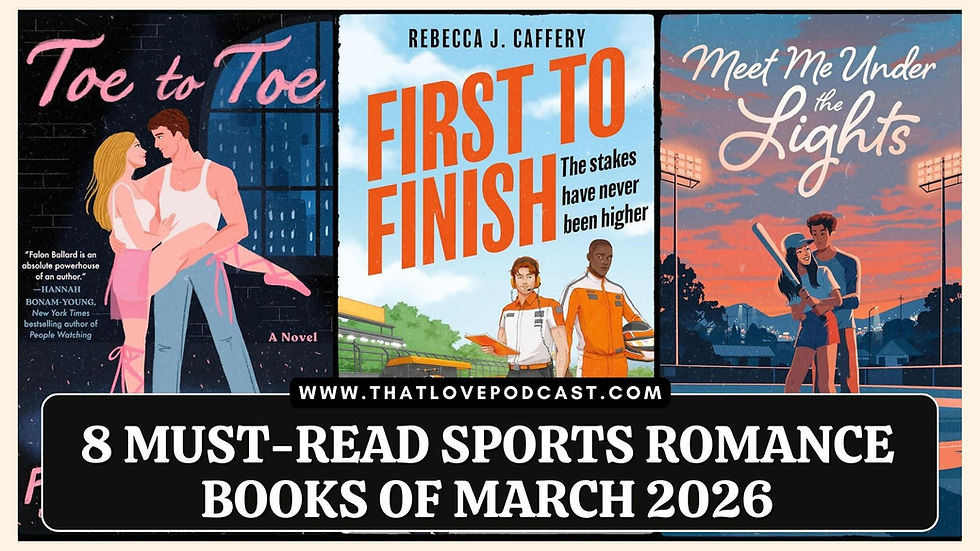Aristotle and Dante Discover the Secrets of the Universe by Benjamin Alire Sáenz Book Review: A Poetic Symphony of Love, Identity, and Unseen Stars
- Joao Nsita
- May 5, 2025
- 6 min read
Introduction
What if the universe whispered its secrets through the quiet collision of two boys’ souls? In Aristotle and Dante Discover the Secrets of the Universe (2012), Benjamin Alire Sáenz crafts a lyrical masterpiece that unfurls like a desert flower under a vast El Paso sky. This award-winning novel follows Aristotle “Ari” Mendoza, a brooding Mexican-American teen, and Dante Quintana, a bright-eyed dreamer, as their chance meeting blooms into a slow-burn gay romance. Sáenz, a poet and storyteller, weaves a tale of first love, family secrets, and self-discovery that’s as tender as it is transformative. A Pride Month classic, it’s swept accolades—Printz Honor, Stonewall Award—and hearts worldwide for its quiet courage. This isn’t just a book—it’s a constellation of feelings you’ll never shake. Ready for more love stories that linger?
Dive into That Love Podcast’s Romance Book Recommendations for your next unforgettable read!
Book Summary
Summer 1987 in El Paso sets the stage for Ari Mendoza, a fifteen-year-old wrestling with anger and a brother locked away in prison—a family secret no one speaks of. At the local pool, he meets Dante Quintana, a free-spirited boy who teaches him to swim and cracks open his guarded world. Dante’s open heart—his love for poetry, his ease with feelings—contrasts Ari’s clenched-fist brooding, sparking a friendship that feels like fate. As they trade letters, dodge bullies, and stargaze on desert nights, Ari grapples with his emerging sexuality and a father haunted by Vietnam, while Dante navigates his own Mexican-American identity. A near-fatal accident binds them tighter, nudging their bond toward something deeper. Sáenz crafts a coming-of-age tale that’s less about plot twists and more about the slow unfurling of love—like a river carving through stone, quiet yet unstoppable. It’s a story of two boys finding each other, and themselves, against a backdrop of dusty streets and unspoken truths.
Author’s Style and Craft
Sáenz’s prose is a poet’s dream—spare, evocative, and dripping with soul, like rain on parched earth. Narrated in Ari’s first-person voice, it’s a stream of raw introspection, every sentence a pebble rippling through his mind. The pacing is deliberate, a gentle current that mirrors the slow dance of adolescence—moments of stillness (Ari and Dante lying on a truck bed, counting stars) crashing into waves of emotion (Ari’s rage at his father’s silence). Dialogue sings with authenticity: Dante’s “I’m not afraid of anything” cuts through Ari’s gruff “Yeah, whatever.” Sáenz excels at character growth—Ari sheds layers of isolation like a snake its skin, while Dante’s vulnerability deepens into quiet strength. The structure, with its episodic vignettes, builds a mosaic of their bond, each piece a brushstroke of longing and revelation. It’s a craft that feels effortless yet cuts deep, a lyrical triumph that makes every page ache with beauty.
Themes and Deeper Meaning
Aristotle and Dante is a tender exploration of love, identity, and the courage to feel. Ari’s journey to embrace his queerness is a slow sunrise—tentative, then blinding—mirroring the universal struggle to name what stirs within. Family secrets, like Ari’s jailed brother, loom as shadows, metaphors for the silences we inherit and must break. Dante’s openness contrasts cultural machismo, challenging Mexican-American norms with a soft rebellion of heart. The desert and stars are more than backdrop—they’re symbols of vastness, the infinite possibilities of self-discovery. Sáenz ties this to broader truths: the weight of unspoken grief (Ari’s father’s war scars), the clash of heritage and individuality, the quiet heroism of loving against odds. It’s Pride distilled—two boys forging a bond that defies hate, a testament to queer youth finding light in a world that often dims it.
Strengths
This book is a quiet marvel, its strengths as luminous as a desert moon. Sáenz’s poetic voice is a knockout—when Ari muses, “The summer sun was not meant for boys like me,” you feel the ache of his solitude. The slow-burn romance is perfection: a scene where Dante holds Ari’s hand after a fight, rain washing their bruises, is electric with unspoken longing. Ari and Dante’s dynamic—gruff meets gentle—grounds their love in a realism that tugs your soul. The cultural texture—Chicano life, El Paso’s grit—adds depth, while the family dynamics (Ari’s stoic dad, Dante’s warm parents) enrich every layer. It’s a masterclass in subtlety, a story that doesn’t shout its queerness but sings it, making every reader feel seen. For Pride, it’s a crown jewel—love’s quiet courage stealing the show, enhancing the journey with its tender, unshakable glow.
Quote: “I wanted to tell them that I’d never had a friend, not ever, not a real one. Until Dante.”
Areas for Improvement
Even a starlit gem has its flickers. The pacing, while poetic, drags in spots—Ari’s brooding can feel repetitive, stalling the momentum for action-hungry readers. Secondary characters—his sisters, the bullies—hover on the edges, their thin sketches leaving gaps where richer roles could amplify the stakes. The family secret, though poignant, resolves too neatly, a bow that might frustrate those craving messier truths. Dante’s near-flawless charm risks tipping into idealization—more flaws could ground him further. Sáenz could tighten the middle or flesh out the ensemble, but these are whispers against a gale of brilliance. For some, the quiet might feel too still—yet for fans of lyrical depth, it’s the stillness that sings.
Comparative Analysis
Aristotle and Dante shines beside David Levithan’s Two Boys Kissing (Amazon Link), both weaving queer love with poetic grace—though Sáenz’s Chicano lens adds a cultural edge Levithan skips. Compared to Sáenz’s The Inexplicable Logic of My Life (Amazon Link), it’s more romantic, less sprawling, focusing on love over family sprawl. Against Adam Silvera’s They Both Die at the End (Amazon Link), it trades tragic flash for tender simmer, challenging YA’s darker queer tropes with unapologetic hope. Its Printz Honor and Stonewall win cement its legacy—a slow-burn classic that redefines coming-of-age with quiet power and cultural heart.
Target Audience
This book calls to teens and adults aged 14-30, especially queer youth and allies seeking mirrors to their own awakenings. Fans of lyrical YA, slow-burn romance, and Mexican-American stories—like Love, Simon or The Poet X lovers—will fall hard. It’s a Pride Month staple for those who cherish love’s quiet victories, perfect for book clubs or dreamy readers over action junkies. Content warning: mild violence (a fight scene) and family trauma may tug heartstrings, but it’s gentle overall. If you’re a romantic soul or a queer teen craving hope, Aristotle and Dante is your starry-eyed must-read.
Personal Impact
Aristotle and Dante slipped into my heart like a desert breeze, soft but seismic. Ari’s guarded ache echoed my own teenage walls, while Dante’s light reminded me of friends who broke them down. I felt their first touch in my chest, a flutter of joy and fear I’ve known too well. It left me wistful, staring at the sky, craving that fearless love they found. You’ll feel it too—a tender pull to hold what matters close, no matter the odds.
Conclusion
Aristotle and Dante Discover the Secrets of the Universe is a lyrical triumph—Benjamin Alire Sáenz spins a romance that’s as vast as the stars and as intimate as a heartbeat. It’s a slow-burn classic, a Pride-ready ode to queer love that whispers courage into every page. Read it, let it unravel you, and watch it stitch you back with hope. In a world quick to divide, this book is a bridge—proof that love, like the universe, holds secrets worth discovering.
About the Author
Benjamin Alire Sáenz, born in 1954 in New Mexico, is a poet, novelist, and YA luminary of Mexican-American descent. Raised near El Paso, he studied theology before turning to writing, earning an MFA from the University of Texas at El Paso. His works—Carry Me Like Water, Last Night I Sang to the Monster—blend lyricism with Chicano identity, but Aristotle and Dante (2012) cemented his fame, snagging Printz, Stonewall, and Pura Belpré honors. Now in El Paso, he teaches and writes. Visit BenjaminAlireSaenz.com, Goodreads, and NPR.
Enjoyed what you read? Subscribe to That Love Podcast’s newsletter for the latest blogs, updates, and exclusive giveaways! Share the joy—pass along our blogs and website to family and friends so they can join in on the fun. Let’s spread the love together!
For more inspiration on personal transformation, check out the Transform Your Life series at That Love Podcast (Transform Your Life | That Love Podcast) and explore wellness tips at That Blissful Wellness Podcast (That Blissful Wellness Podcast Episodes | That Love Podcast).
FAQ Section
What is Aristotle and Dante about?
Two Mexican-American teens in 1980s El Paso grow from friends to lovers, uncovering family secrets and their queerness.
Who is Benjamin Alire Sáenz?
A poet and YA author known for lyrical Chicano stories, crowned by this award-winning classic.
Is it a standalone book?
Yes, until its 2021 sequel—Volume 1 stands beautifully alone.
What are the main themes?
Queer love, self-discovery, family silence, and Mexican-American identity weave the heart.
Is it suitable for younger readers?
Ideal for 14+; mild violence and emotional depth suit teens upward.
Why’s it a Pride pick?
Ari and Dante’s quiet courage embodies queer love’s triumph—a Pride beacon.
How’s the writing style?
Poetic and spare—like a desert song, raw and resonant.
Does it tackle culture?
Yes, Chicano life in El Paso adds rich texture to their journey.
Is there a happy ending?
Joyful yet open—love wins, with room for more secrets to unfold.
Where can I buy it?
.jpg)






















Comments